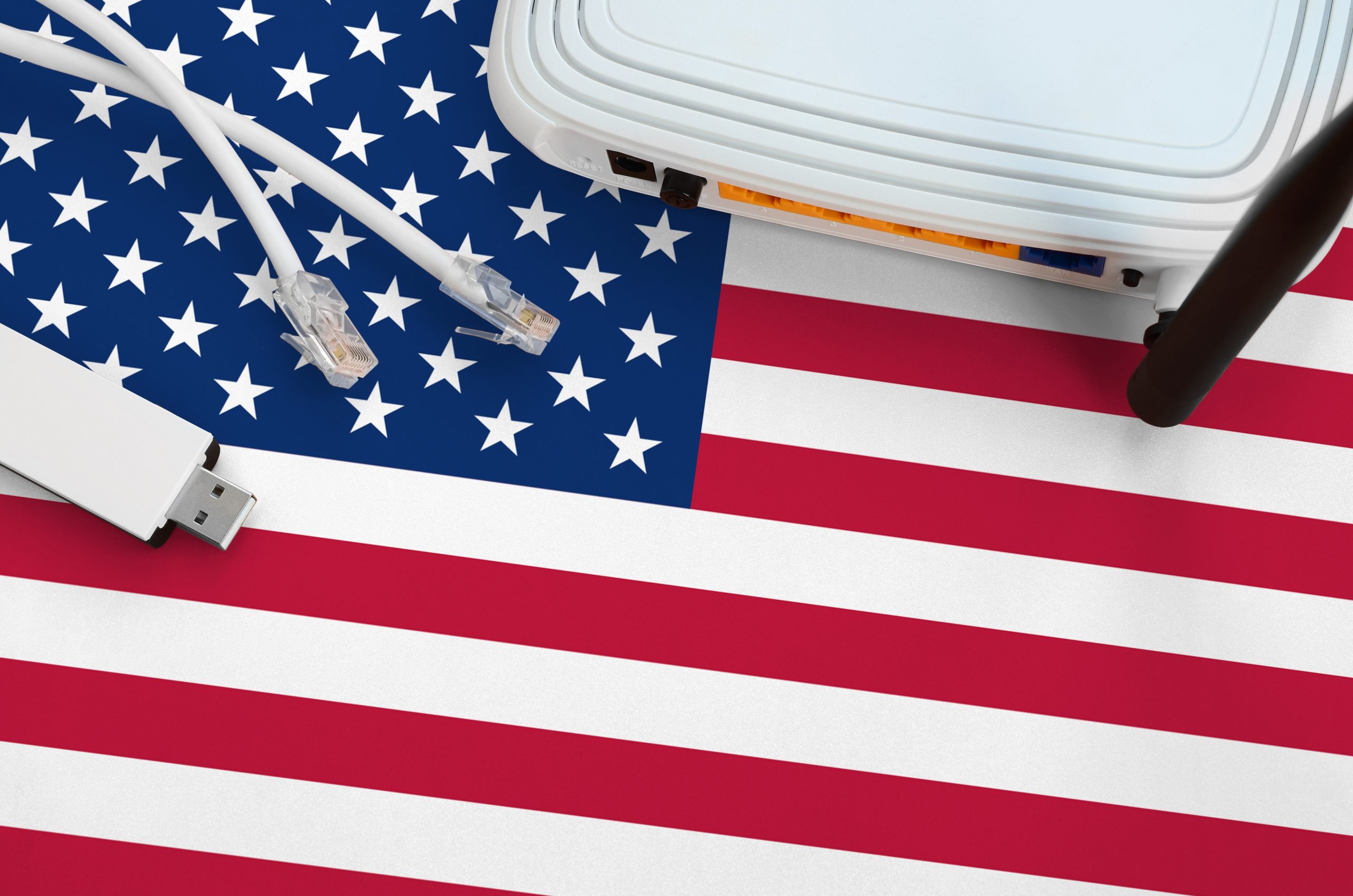“For a society built on innovation, we have now denied a generation the ability to even envision the world upon which they could innovate. This digital divide will have real and lasting costs for our country, and the public and private sectors must come together to address this crisis.”
 As we celebrate World IP Day this week, the theme of which is “IP and SMEs [small and medium enterprises]”, we must remember that – from its founding – the United States’ economic success has depended on fostering an environment where innovators and entrepreneurs can dream big and achieve success. But that success is now at risk because our nation is lagging behind others in ensuring that everyone, everywhere, can access the most important tool of our time – the internet.
As we celebrate World IP Day this week, the theme of which is “IP and SMEs [small and medium enterprises]”, we must remember that – from its founding – the United States’ economic success has depended on fostering an environment where innovators and entrepreneurs can dream big and achieve success. But that success is now at risk because our nation is lagging behind others in ensuring that everyone, everywhere, can access the most important tool of our time – the internet.
Knowledge Denied is Innovation Lost
The story of America’s success goes hand-in-hand with the story of America’s inventors. The modern suspension bridge, skyscrapers and airplanes that dot our skylines all chart their origins to American inventors.
What traditionally has united such innovations is they were developed by people who could rely solely on their own knowledge, vision and imagination. They could see the challenges in front of them and develop a solution.
But today, millions of American children lack internet access and thus are denied the same vision and knowledge as their peers. This not only robs these children of opportunities; it robs our nation of their potential ideas and ingenuity.
Powerful Tools Must be Wielded Equitably
The internet is a powerful tool. During the pandemic, the internet helped Americans access groceries without going to the store, and access doctors without risking a visit to a provider’s office. For Americans stuck at home, the internet made it easier to work and stay in touch with colleagues and clients.
But like any tool, the internet has the potential for harm, particularly when it is not deployed equitably. Those with access to reliable high-speed internet can enjoy the benefits of telework, online shopping, telemedicine, and distance learning. But for those without, the internet can further isolate them from society. This has been most evident during the COVID-19 pandemic.
Last year, in the course of just a few weeks, the pandemic abruptly moved school online for 55 million Americans. For the nearly 17 million American students without home internet access, school disappeared entirely. This problem was especially pronounced for people of color, with one out of three Black, Latino, American Indian/Alaska Native households lacking access to the internet.
Thanks to this lack of internet access, most of these children just completed a year with almost no schooling. These kids have been denied the same opportunity to create, imagine and learn as their peers.
Real and Lasting Costs
For a society built on innovation, we have now denied a generation the ability to even envision the world upon which they could innovate. This digital divide will have real and lasting costs for our country, and the public and private sectors must come together to address this crisis.
Collectively, we must begin viewing the internet as a utility, as critical as electricity. In 1932, only 10% of rural America was electrified. Recognizing that this electrical divide was separating rural Americans from modern society, the government established the Rural Electrification Administration (REA). The REA then worked with private industry to provide loans that encouraged rural electrification projects.
The right approach for expanding internet access may be different, but the commitment must be the same. Already, states like California are looking at ways to invest in broadband infrastructure, with an eye toward prioritizing unserved and disadvantaged communities. This is a good start, but a national approach is needed.
The Biden Administration has included rural broadband expansion in its recently unveiled infrastructure plan, and Congress should prioritize this investment. Like the electrical lines and highways that united the American economy of the 20th century, internet access must be expanded to unite Americans to the economy of the 21st century. We cannot afford to deny information and education to young people whose thoughts and dreams may hold the key to the next great innovations of the Internet Era.
Image Source: Deposit Photos
Image ID:326829654
Copyright:Mehaniq

![[IPWatchdog Logo]](https://ipwatchdog.com/wp-content/themes/IPWatchdog%20-%202023/assets/images/temp/logo-small@2x.png)

![[[Advertisement]]](https://ipwatchdog.com/wp-content/uploads/2024/04/Patent-Litigation-Masters-2024-banner-early-bird-ends-Apr-21-last-chance-938x313-1.jpeg)
![[Advertisement]](https://ipwatchdog.com/wp-content/uploads/2024/04/Patent-Litigation-Masters-2024-sidebar-early-bird-ends-Apr-21-last-chance-700x500-1.jpg)

![[Advertisement]](https://ipwatchdog.com/wp-content/uploads/2021/12/WEBINAR-336-x-280-px.png)
![[Advertisement]](https://ipwatchdog.com/wp-content/uploads/2021/12/2021-Patent-Practice-on-Demand-recorded-Feb-2021-336-x-280.jpg)
![[Advertisement]](https://ipwatchdog.com/wp-content/uploads/2021/12/Ad-4-The-Invent-Patent-System™.png)







Join the Discussion
4 comments so far.
Jacek
April 26, 2021 01:42 pmAre Wolfs crying for more sheep? It Is more harmful to participate than not. Improving safety for the fish in the ocean is more important now than ever, Not force it to swim in shark infested waters.
xtian
April 26, 2021 12:33 pm“Thanks to this lack of internet access, most of these children just completed a year with almost no schooling.”
Schools did not have to go 100% virtual. In certain areas of the country, only those inner cities schools went 100% virtual for which (ask any teacher) and you’ll hear anecdotal stories of “vanishing kids” – Kids that never once logged into their chrome books.) Interestingly, some suburban and some rural schools did not go 100% virtual, and most private schools stayed open on a hybrid schedule. Who makes those decisions? The elected school boards. It is those people that we should be addressing.
As to internet access, in my local city, they put in wifi access points within the city and anyone can log onto it…. That was a city counsel decision (one of their few good ones).
So rural and suburbs schools don’t close – access to internet. A city creates it’s own web so that its residents have internet access, including the inner city students who were forced to be 100% virtual. Local problems, local solutions.
Anon
April 26, 2021 09:38 amAccess (regardless of the harm that Mr. Smith alludes to – which is more of an indicator of absence of parenting) COULD BE an actual infrastructure item.
Yes, the access OF certain content can be (very much) harmful. But the first sense of teaching children come from parents – not state schools.
Brad Smith
April 26, 2021 08:33 amThe internet has harmed our children far more than it has helped them. Microshort attention spans, lack of exercise, obesity, obsession with social media, anxiety, depression, pornography, etc, etc. Ask virtually any teacher the internet’s effect on students’ critical thinking skills.